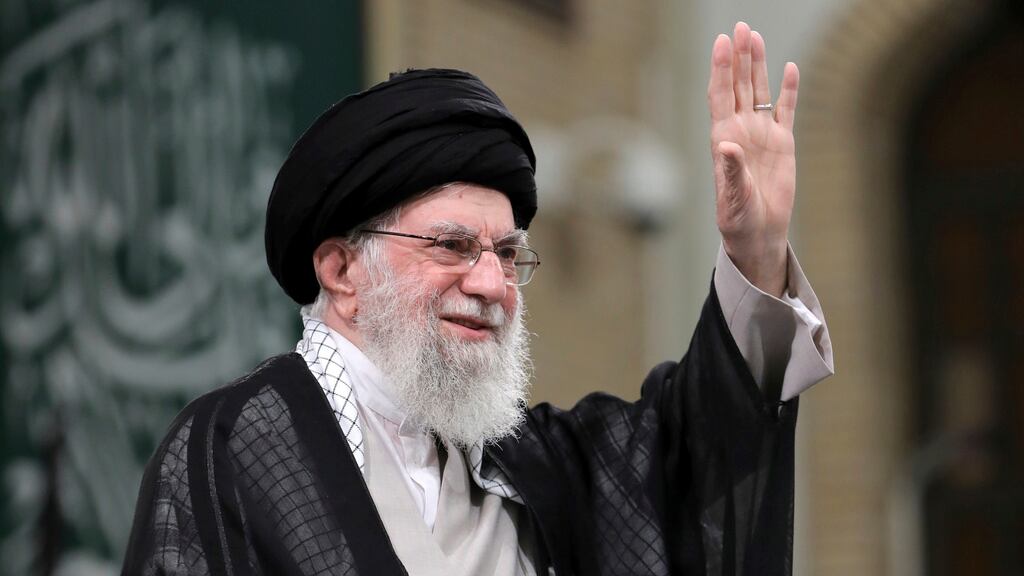DUBAI, United Arab Emirates (AP) — The supreme leader of Iran threatened both Israel and the United States with “a crushing response” on Saturday for the recent attacks against the Islamic Republic and its allies.
PUBLICIDAD
Ayatollah Ali Khamenei spoke as Iranian authorities escalate their threats of launching another attack against Israel following the Israeli operation on October 26th, which targeted Iranian military bases and other parts of the country and killed at least five people.
PUBLICIDAD
An additional attack from either side could plunge the Middle East into a broader conflict. The region is already feeling the strain from the war between Israel and Hamas in the Gaza Strip and the Israeli ground invasion in southern Lebanon, on the eve of the United States presidential elections being held on Tuesday.
"The enemies, whether it be the Zionist regime or the United States of America, will definitely receive a crushing response to what they are doing to Iran and the Iranian nation, and to the resistance front,” Khamenei said in a video published by Iranian state media.
What was the threat of the Iranian leader?
The supreme leader did not give more details about when the attack could occur or its scope. American military forces operate throughout the region and some troops handle a Terminal High Altitude Area Defense battery, or THAAD, in Israel.
The 85-year-old Ayatollah Khamenei had adopted a more cautious approach in his previous statements, saying that officials would evaluate Iran's response and that the Israeli attack "should neither be exaggerated nor minimized".
However, Tehran's efforts to downplay the attack were thwarted when satellite images analyzed by The Associated Press showed damage to military bases near the capital and linked to the ballistic missile program, as well as damage to a Revolutionary Guard base used for satellite launches.
Iran's allies have also been seriously affected by the ongoing Israeli attacks, especially Hezbollah in Lebanon and Hamas in Gaza. For a long time, the Islamic Republic has used these groups both as an asymmetrical way of attacking Israel and as a shield against a direct assault. Some analysts believe that these militias want their ally to do more to support them militarily.
Iran has its own domestic problems, with its economy weighed down by international sanctions and years of various widespread protests.
General Mohammad Ali Naini, spokesman for the Revolutionary Guard, which controls the ballistic missiles needed to attack Israel, gave an interview published by the semi-official Fars news agency just before Khamenei's statements were made known. In it, he warned that Iran's response "will be wise, powerful and beyond the understanding of the enemy."
Khamenei met on Saturday with university students to commemorate Student's Day, which recalls the incident on November 4, 1978, when Iranian soldiers fired on students protesting against the Shah's government at Tehran University. The shooting caused several deaths and injuries, further escalating the tensions that were consuming the country at that time, which ultimately led to Mohammad Reza Pahlavi's flight from the country and the 1979 Islamic Revolution.
